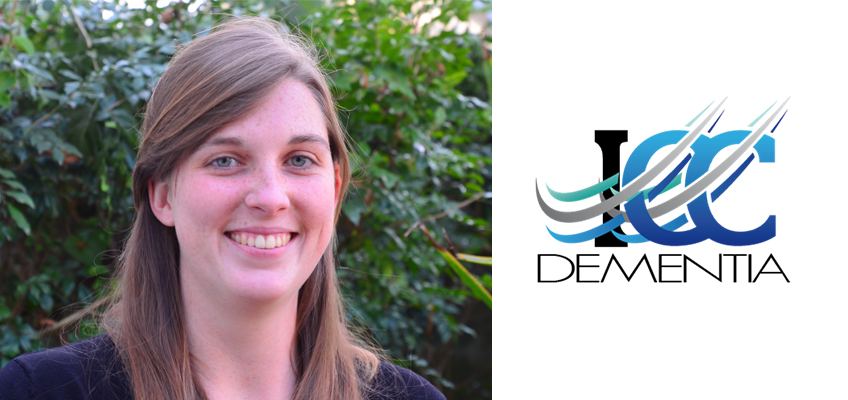17 Sep 2015

KATE CROSBIE and HEIDI DOUGLASS | h.douglass@unsw.edu.au
One of the most exciting things about being involved with The Dementia Momentum® initiative is its focus on real world application, according to Ms Catriona Daly, the new co-ordinator of the International Centenarian Consortium of Dementia (ICC-Dementia) at the Centre for Healthy Brain Ageing (CHeBA).
“One of CHeBA’s strengths lies in its strong social justice focus. It is not just about getting research papers published, it’s about improving people’s lives and helping them overcome or cope with real problems of ageing by investigating and providing evidence based information and interventions”, explained Ms Daly.
“Our strong affiliations across a number of organisations at the forefront of health delivery services mean that the individuals at the centre of this research are never far from our mind.”
ICC-Dementia combines international centenarian and near-centenarian studies to describe the cognitive and functional profiles of exceptionally old individuals. CHeBA researchers are systematically exploring the risk and protective factors involved in dementia and longevity, as well as providing real-life models of healthy brain ageing to develop strategies for escaping or delaying the onset of dementia.
“The relative recentness of centenarians as a research area is very exciting, as is the ability to merge psychological, functional, physical and physiological data into meaningful conclusions that have real world consequences,” said Ms Daly.
“Studying centenarians provides an exciting opportunity to work out how to prevent the onset of dementia for future generations and the use of longitudinal studies means that we are able to access an almost complete picture of a person’s health and lifestyle. I hope that this will inform clinical interventions and raise awareness of lifestyle choices which can be altered to ensure successful ageing.”
This year, ICC-Dementia expanded its membership to include studies from Poland, Hong Kong, The Netherlands, Spain and the UK, and now comprises seventeen studies in the Asia-Pacific region, Europe and the Americas.
“By using data collaboratively from around the world, we can come to broad conclusions about the human race, rather than countries in isolation,” explained Ms Daly.
Following a meeting of ICC-Dementia in Sardinia in June, the consortium has gained a renewed momentum. Multiple studies from Europe, Asia, Australia and North America were presented in Sardinia, and it became apparent that there are some pockets in the world in which centenarians appear to be cognitively quite healthy. To understand the basis of the inter-regional differences is a major, and potentially rewarding, challenge.
Although the diverse datasets present a number of challenges, international collaboration was a major drawcard for Ms Daly taking the co-ordinator role.
“Any given day I might write an email in French requesting data from one of our international collaborators, ask a colleague about the Spanish schooling system in order to harmonise education variables, and then translate abbreviated Polish variable names into English. Having lived in France, the United Kingdom and The Netherlands, I have a strong understanding of cultural differences and the effects these can have both academically and socially. Currently collaborating with over ten different countries, this is proving particularly useful.” she said.
“It is so rewarding to work within a group that houses passionate researchers from such a wide variety of backgrounds: from a Chinese-trained neuropsychologist to a Brazilian research fellow physicist-come psychological statistician, it really feels like we are at the forefront of our field and that’s incredibly exciting. I’m enjoying the international collaboration the most in my role: working alongside international leaders in the field who share a desire to accelerate the world’s understanding of disorders of ageing.”
Asked about the future of ageing, Ms Daly is cautiously optimistic: “I think that people will live to older and older ages and while this is exciting, it also requires a decision to live healthy lives - which means remaining cognitively and physically active for as long as possible - so that this extension of the life span is productive and fulfilling.”
Ms Daly holds an undergraduate degree in Psychology from the University of Sydney and a Masters of Clinical Psychology from the University of Leiden (The Netherlands). She has also worked in the British health system as a trainee psychologist and has a clinical background working for not-for-profit organisations.
